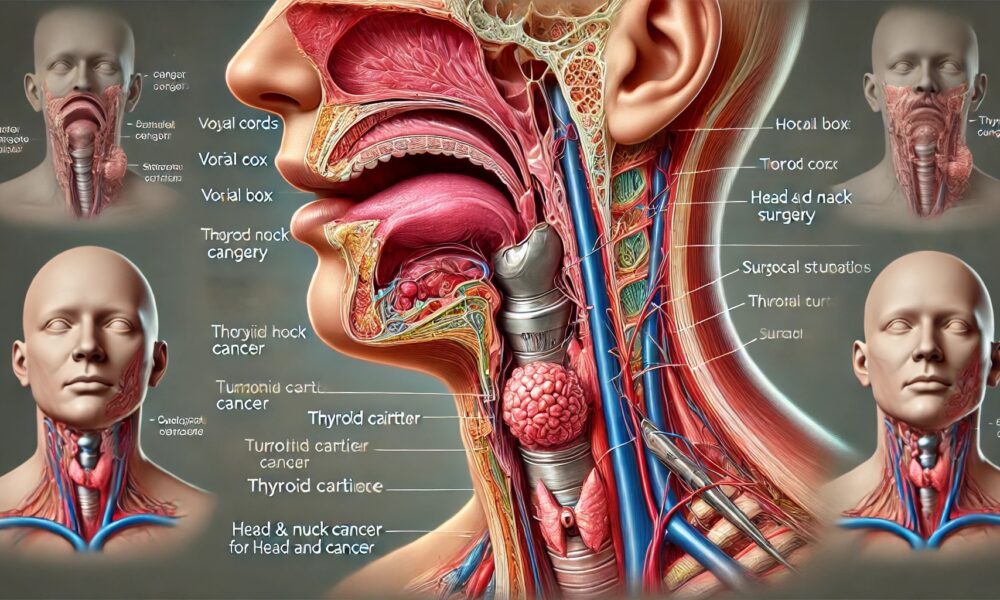Laryngeal cancer originates in the larynx, commonly known as the voice box, located in the throat. The larynx plays a crucial role in breathing, speaking, and swallowing. Early detection and specialized care are vital for effective treatment and improved outcomes.
Symptoms of Laryngeal (Voice Box) Cancer
Laryngeal cancer symptoms can vary but commonly include:
Risk Factors
Several factors can increase the risk of developing laryngeal cancer, including:
- Tobacco Use: Smoking cigarettes, cigars, pipes, or using smokeless tobacco products significantly elevates the risk.
- Excessive Alcohol Consumption: Regular and heavy intake of alcohol, especially when combined with tobacco use, further increases the risk.
- Human Papillomavirus (HPV) Infection: Certain strains of HPV have been linked to laryngeal cancers.
- Age and Gender: Laryngeal cancer is more common in individuals over the age of 60 and is more prevalent in men than women.
- Exposure to Asbestos and Other Industrial Chemicals: Occupational hazards can contribute to risk.
- Occupational Exposure: Prolonged exposure to harmful substances such as asbestos and other industrial chemicals can contribute to the development of laryngeal cancer.
Diagnostic Approaches
Accurate diagnosis involves a combination of:
01
Physical Examination
✔ Assessment of the throat, neck, and lymph nodes.
02
Endoscopy & Biopsy
✔ Using a flexible tube with a camera to view the larynx's interior.
✔ Removing a small tissue sample for laboratory analysis to confirm cancer presence.
✔ Removing a small tissue sample for laboratory analysis to confirm cancer presence.
03
Imaging Tests
✔ CT scans, MRI, and PET scans to determine the extent of cancer spread.
Treatment Options for Laryngeal (Voice Box) Cancer
Treatment plans are tailored based on the cancer's type, stage, and patient's overall health. Common treatments include:
Surgery:
- Removal of the tumor and possibly some surrounding tissue. Minimally invasive techniques, such as robotic-assisted surgery, may be utilized for precision and quicker recovery.
Radiation Therapy:
- High-energy beams target and destroy cancer cells.
Chemotherapy:
- Drugs administered to kill or halt the growth of cancer cells, often used in conjunction with radiation.
Targeted Therapy:
- Medications that specifically attack cancer cell mechanisms.
Expert Care with Dr. Dushyant Mandlik
Dr. Dushyant Mandlik is a distinguished surgical oncologist specializing in the management of benign and malignant tumors in the head and neck region. His expertise encompasses:
Minimally Invasive Robotic Surgeries:
- Utilizing advanced robotic systems for precise tumor removal with reduced recovery times.
Comprehensive Head and Neck Cancer Management:
- Addressing cancers of the mouth, pharynx, larynx, sinuses, thyroid, parathyroid, and salivary glands.
Reconstructive Surgeries:
- Focusing on restoring function and appearance post-tumor removal to enhance patients’ quality of life.
For individuals experiencing symptoms or seeking specialized care for throat cancer, consulting with Dr. Mandlik ensures access to personalized and advanced treatment strategies.

